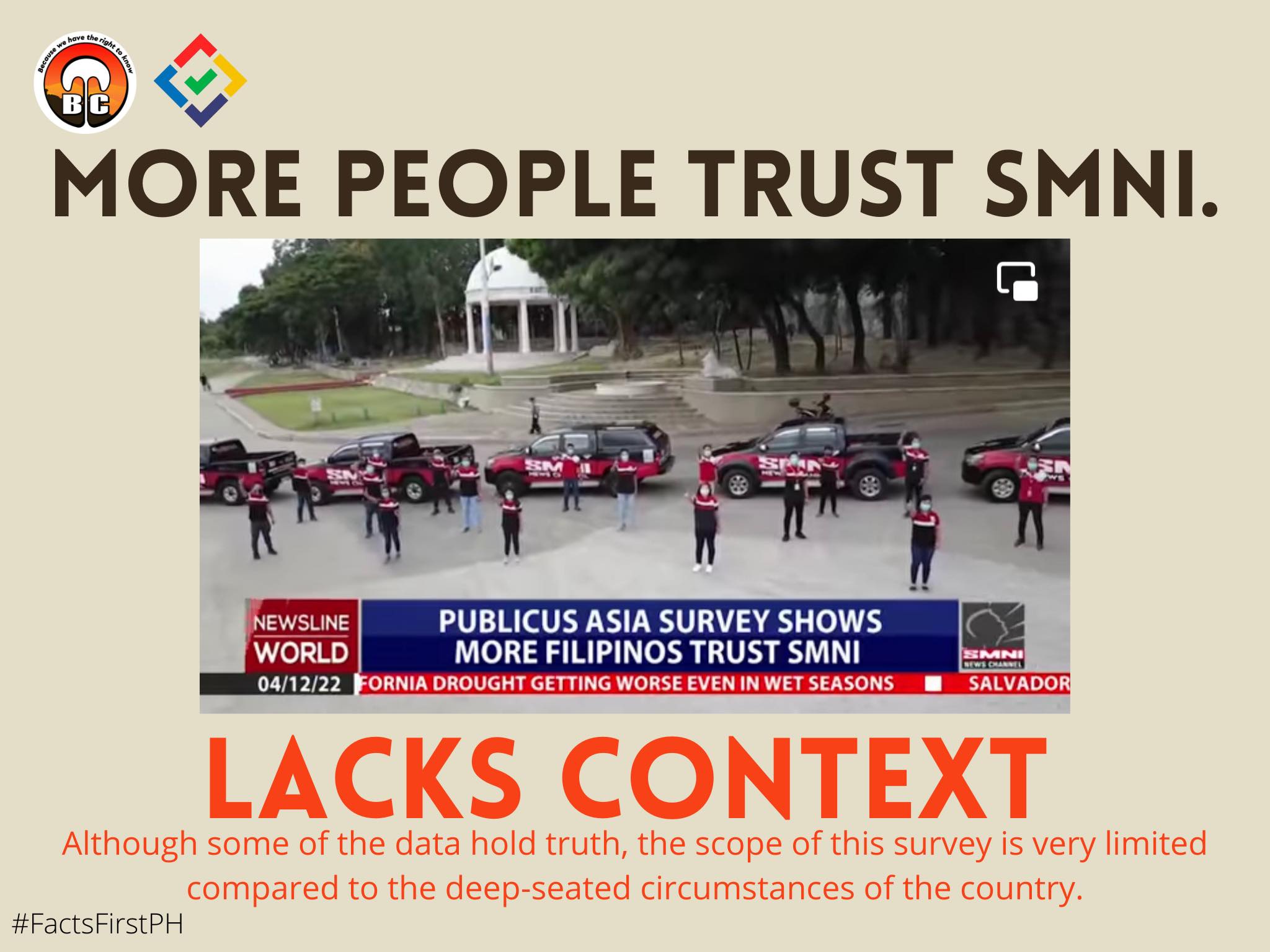Claim: More people trust SMNI.
Rating: LACKS CONTEXT
The Facts: According to the latest Publicus Asia survey, Sonshine Media Network International (SMNI) gained a total of 32.3% trust rating for the first quarter of 2022 compared to the 16% last December.
The claim has been broadcast by the Sonshine Media Network International (SMNI) and has been spreading on social media. https://fb.watch/djsGgIgytb/
SMNI is the broadcasting company of the Kingdom of Jesus Christ (KJC). It is led by Apollo Quiboloy who is wanted by the Federal Bureau of Investigation for cases on Sex Trafficking of Children, Sex Trafficking by Force, Fraud, and Coercion amongst other crimes.
Although some of the data hold truth, the scope of this survey is very limited compared to the deep-seated circumstances of the country.
The survey also did not say how many were surveyed and if those surveyed reflect the country’s population and economic profile.
What were the questions asked in the survey? These should also be included in the story as well as who funded the survey and why was it done.
The reason for the increase in trust in SMNI can be linked to its nature of being a television channel.
According to Statista, the outlet from which news has been delivered plays a huge factor in the trust of the viewers.
Globally, social media is seen as a less reliable source of news, and in the EU radio and television are viewed as more dependable. In the current climate of fake news and polarizing political events, young people around the world are having a tough time relying on the mass media, although this attitude is also seen among older generations.
Yet even with this information, the overall trust rating of Filipinos in news outlets was very low with only a 32% rating in global surveys.
This is because the Philippines has been a breeding ground of disinformation since before the 2022 elections. The internet was utilized for fake news propaganda including trolls and biased reporting.
Furthermore, 51% of Filipinos cannot distinguish fake news on television or social media. The biggest enablers in social media are Facebook, YouTube, and TikTok.
The situation worsens as 70% of Filipinos get their news from social media according to Publicus Asia themselves.
Because of this issue, 69% of Filipinos believe that fake news in media is a serious problem. This points back to the low trust rate of Filipinos in the news media. https://www.sws.org.ph/swsmain/artcldisppage/…
And yet for SMNI, which is widely known for disseminating unverified and biased reports, to be able to increase its trust value is simply amazing.
Why we fact-checked this: Due to the mass disinformation in our society, it is imperative to be critical of the news that we consume. This propaganda against truth is a violation of our human rights and democracy which aims to obscure us from other major issues like corruption.










